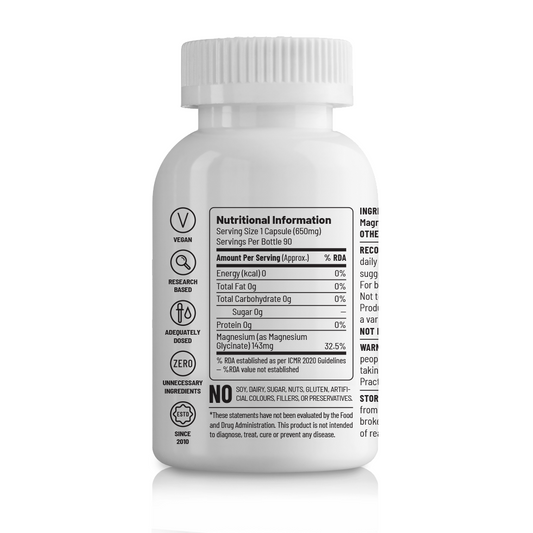







- Learn More
- Ingredients
- FAQ
What is Magnesium Glycinate Chelated Buffered? ?
Magnesium Glycinate Chelated Buffered is a blend of magnesium bisglycinate chelate (highly bioavailable) and a small portion of magnesium oxide. This formulation delivers 22% elemental magnesium, offering a higher dose per serving while retaining good absorption and gastrointestinal tolerance.
Why is your product buffered instead of using 100% pure chelate? ?
Pure magnesium bisglycinate chelate contains only ~14.1% elemental magnesium. To deliver a clinically relevant dose in fewer capsules, we use a buffered form, which combines chelate with magnesium oxide to safely increase elemental content. This allows for higher potency.
Is buffered magnesium glycinate less effective than pure chelate? ?
While pure chelate offers the highest absorption, buffered magnesium glycinate still maintains superior bioavailability compared to common forms like magnesium oxide or citrate.
What benefits can I expect from supplementing with this product? ?
Magnesium supports muscle and nerve function, cardiovascular health, bone strength, stress reduction, and better sleep. Our buffered chelate form delivers these benefits efficiently, with enhanced absorption, high elemental magnesium, and good digestive tolerance.
Associated Bundles
-
Vendor:Essential Minerals Bundle
Essential Minerals Bundle
Regular price ₹2,550.00Regular priceUnit price per₹2,550.00Sale price ₹2,550.00










